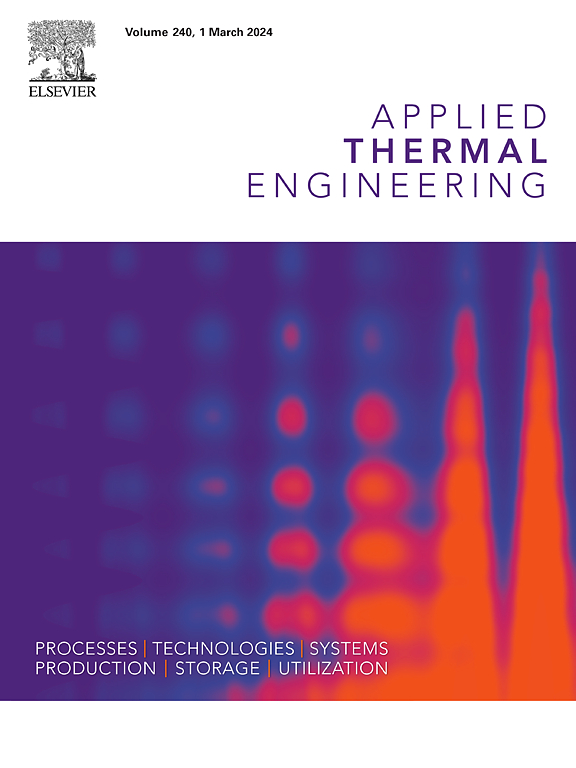Nanostructured coatings for enhanced photothermal conversion in solar desalination systems
IF 6.9
2区 工程技术
Q2 ENERGY & FUELS
引用次数: 0
Abstract
Conventional solar driven desalination systems have suffers from low thermal efficiency and salt accumulation. This paper examines the use of black silicon and carbon nanotube based surface coatings to increase photothermal performance of solar desalination systems. The absorber plates were spray coated with these coatings using a low cost spray coating technique and tested in outdoors weather conditions. The maximum evaporation rate reached 2.65 kg/m2·h under solar irradiance of 870 W/m2 for the coated system, compared to 1.12 kg/m2·h for the uncoated control. Consequently, more than 99 % of the total dissolved solids (TDS) concentration was removed from the collected water, as confirmed by spot water tests that fell within WHO’s potable water limits. First, the coatings showed sufficient thermal stability after 1000 h at 900 °C and a preliminary economic analysis indicated a projected coating cost ranging from USD 8–12/m2 with a return on investment favorable for offgrid deployment. This work distinguishes itself from the previous studies by simply combining spectrally optimized nanomaterial with scalable fabrication with the evaluation of environmental impact, anti-fouling behavior and ion rejection mechanisms. These results indicate that black silicon–carbon nanotube composites are a durable, efficient and scalable approach toward sustainable solar based desalination technologies.
太阳能脱盐系统中增强光热转换的纳米结构涂层
传统的太阳能海水淡化系统存在热效率低和盐积累的问题。本文研究了使用黑硅和碳纳米管为基础的表面涂层来提高太阳能脱盐系统的光热性能。采用低成本的喷涂技术在吸收板上喷涂这些涂层,并在室外天气条件下进行了测试。当太阳辐照度为870 W/m2时,涂层系统的最大蒸发速率达到2.65 kg/m2·h,而未涂层系统的最大蒸发速率为1.12 kg/m2·h。因此,99%以上的总溶解固体(TDS)浓度从收集的水中被去除,这一点经现场水质测试证实,符合世卫组织的饮用水限制。首先,涂层在900°C下加热1000小时后表现出足够的热稳定性,初步的经济分析表明,预计涂层成本在8-12美元/平方米之间,投资回报有利于离网部署。这项工作与以往的研究不同之处在于,它简单地将光谱优化的纳米材料与可扩展制造相结合,并对环境影响、抗污染行为和离子排斥机制进行评估。这些结果表明,黑硅-碳纳米管复合材料是一种耐用、高效、可扩展的可持续太阳能脱盐技术。
本文章由计算机程序翻译,如有差异,请以英文原文为准。
求助全文
约1分钟内获得全文
求助全文
来源期刊

Applied Thermal Engineering
工程技术-工程:机械
CiteScore
11.30
自引率
15.60%
发文量
1474
审稿时长
57 days
期刊介绍:
Applied Thermal Engineering disseminates novel research related to the design, development and demonstration of components, devices, equipment, technologies and systems involving thermal processes for the production, storage, utilization and conservation of energy, with a focus on engineering application.
The journal publishes high-quality and high-impact Original Research Articles, Review Articles, Short Communications and Letters to the Editor on cutting-edge innovations in research, and recent advances or issues of interest to the thermal engineering community.
 求助内容:
求助内容: 应助结果提醒方式:
应助结果提醒方式:


